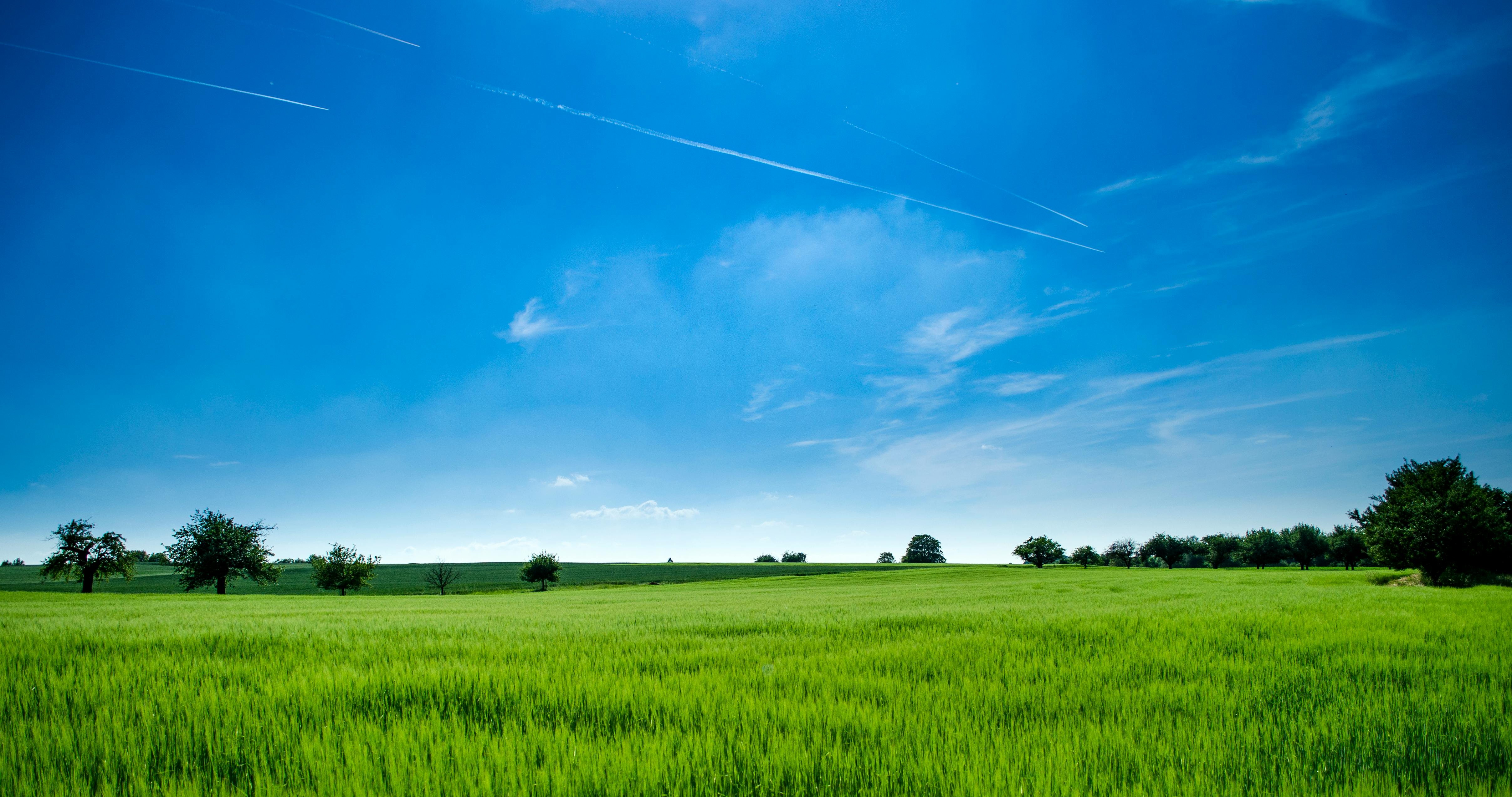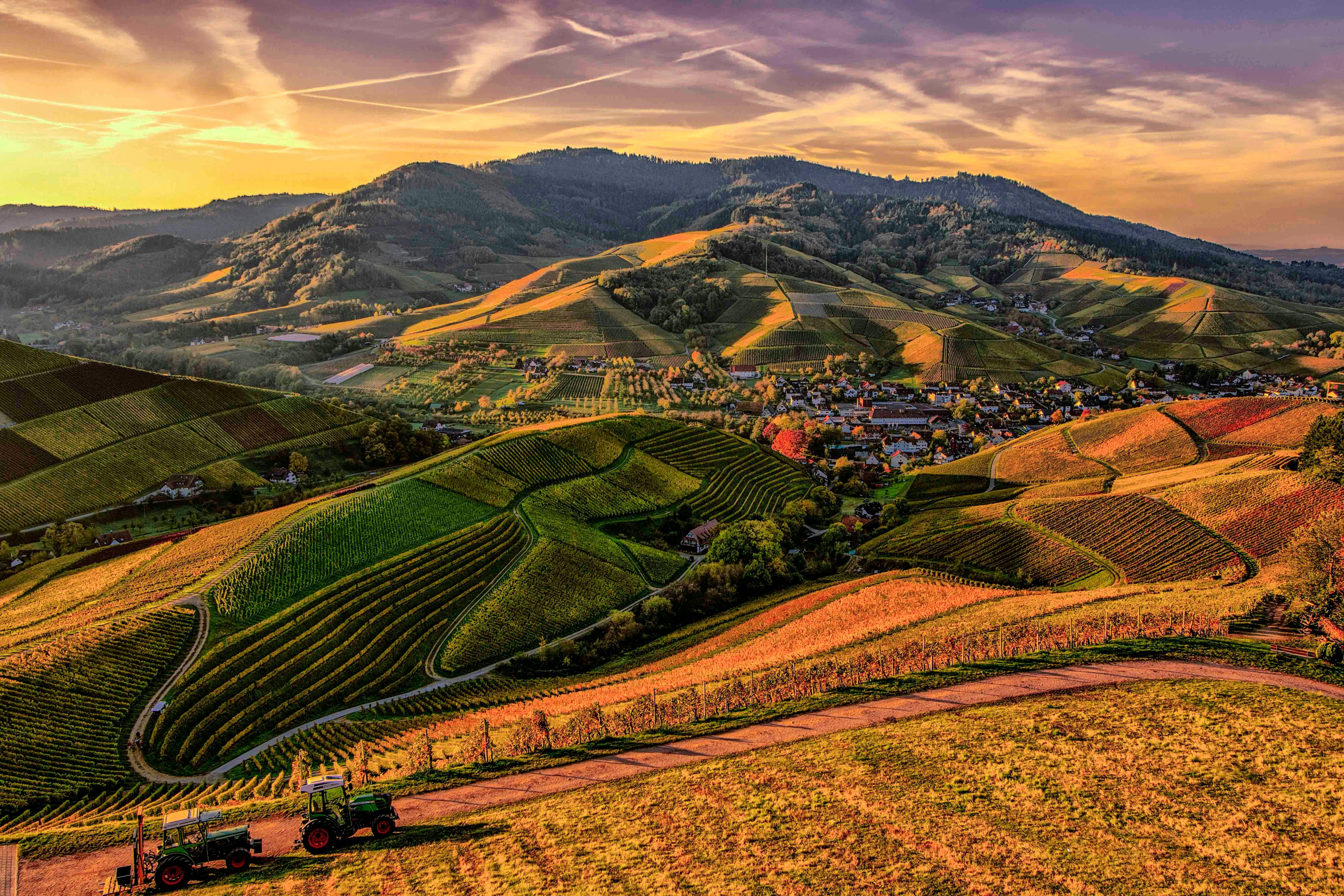Technology continues to revolutionize various industries, and precision farming is no exception. In recent years, the agriculture sector has witnessed significant advancements thanks to Google Cloud Platform’s (GCP) Agriculture AI. This innovative technology is changing the game for farmers by providing them with valuable insights and data-driven solutions to enhance crop yield, reduce costs, and optimize their farming practices. With GCP’s Agriculture AI, farmers can make informed decisions, identify potential risks, and maximize the efficiency and sustainability of their operations. As we delve into the world of precision farming, let’s explore the remarkable impact and potential of GCP’s Agriculture AI in transforming the future of agriculture.

Advancements in Precision Farming
Precision farming, also known as smart farming or site-specific crop management, has revolutionized the agricultural industry in recent years. It involves the use of technology, data analysis, and AI to optimize various aspects of farming operations, resulting in increased crop yield, resource efficiency, and improved sustainability. One of the leading players in this field is Google Cloud Platform (GCP), which offers advanced solutions through its Agriculture AI platform. In this article, we will explore the benefits of precision farming, the challenges it faces, the role of AI in this domain, and the advantages of using GCP’s Agriculture AI.
Introduction to Precision Farming
Precision farming refers to the practice of using technology to precisely manage farming operations based on specific site conditions. It involves collecting and analyzing data from various sources such as soil sensors, weather stations, and satellite imagery to make informed decisions. This data-driven approach allows farmers to optimize the use of resources and make precise interventions, resulting in improved productivity and reduced costs. Precision farming has gained prominence in modern agriculture due to its ability to address the challenges faced by traditional farming methods.

Benefits of Precision Farming
Precision farming offers numerous benefits over conventional farming practices. Let’s explore some of the key advantages it brings to the table:
Increased Crop Yield
By utilizing real-time data and advanced analytics, precision farming enables farmers to make informed decisions regarding crop management. This includes optimizing irrigation schedules, applying fertilizers and pesticides at the right time and in the right quantity, and identifying areas of the field that require special attention. Such precision in crop management leads to increased yield and improved overall productivity.
Optimized Resource Efficiency
Traditional farming methods often involve excessive use of resources such as water, fertilizers, and energy, resulting in wastage and increased costs. Precision farming, on the other hand, takes a targeted approach by providing farmers with accurate information about soil moisture levels, nutrient content, and weather patterns. This allows farmers to optimize the use of resources, reducing waste and conserving valuable inputs.
Reduced Environmental Footprint
Precision farming practices significantly reduce the environmental impact of agriculture. By minimizing the use of chemicals and fertilizers through targeted applications, precision farming helps prevent water and soil pollution. It also reduces greenhouse gas emissions by optimizing energy consumption and minimizing the use of machinery.
Enhanced Crop Quality
Through precise monitoring and management, precision farming ensures crop uniformity, resulting in improved quality. By addressing variability within a field, farmers can produce crops that meet specific market requirements and command higher prices. This not only benefits the farmer but also enhances consumer satisfaction.
Effective Pest and Disease Management
Precision farming employs advanced technologies such as drones, satellite imagery, and AI-powered algorithms to monitor fields for signs of pests and diseases. By detecting potential threats early on, farmers can take proactive measures to mitigate risks and prevent the spread of pests and diseases across the entire field. This targeted approach reduces the need for widespread pesticide application, leading to cost savings and reduced ecological impact.
Challenges in Precision Farming
While precision farming offers immense potential, it also faces several challenges that need to be addressed for its widespread adoption. Let’s take a look at some of these challenges:
Lack of Data Accuracy
Precision farming relies heavily on accurate and reliable data. However, data collection, especially in remote areas, can be challenging. Inconsistent data quality can lead to inaccurate analysis and flawed decision-making. Efforts must be made to ensure data accuracy through appropriate sensors, reliable connectivity, and quality control measures.
Complexity in Data Analysis
The sheer volume of data generated in precision farming can be overwhelming. Analyzing and making sense of this data requires sophisticated tools and expertise. Farmers need to be equipped with the necessary skills to interpret the data and derive actionable insights. Simplifying data analysis processes and providing user-friendly interfaces can help overcome this challenge.
Integration of Multiple Systems
Precision farming involves the integration of various technologies and systems, ranging from soil sensors and weather stations to drones and AI algorithms. Integrating these disparate systems and ensuring seamless data flow can be a complex task. Standardizing protocols and interfaces can facilitate interoperability, enabling farmers to adopt integrated solutions more easily.
Cost of Implementation
The adoption of precision farming technologies often entails significant upfront costs. Farmers need to invest in sensors, hardware, software, and training to make the most of these technologies. While the long-term benefits outweigh the initial costs, it may pose a barrier to entry for small-scale farmers. Governments and industry stakeholders can play a crucial role in providing financial support and incentives to encourage widespread adoption.
Training and Skill Development
Precision farming requires farmers to acquire new skills and knowledge related to data analysis, technology operation, and decision-making processes. Training programs and workshops must be readily available to help farmers navigate this transition effectively. Collaboration between agricultural institutions, technology providers, and government agencies can ensure that farmers are adequately trained to harness the full potential of precision farming.

Role of AI in Precision Farming
Artificial Intelligence (AI) plays a pivotal role in enabling precision farming. Let’s explore how AI is leveraged in this domain:
Introduction to Artificial Intelligence
Artificial Intelligence refers to the ability of computer systems to perform tasks that would typically require human intelligence. AI systems can analyze large volumes of data, identify patterns, and make informed decisions based on the analyzed information. In the context of precision farming, AI algorithms can analyze data from various sources and provide actionable insights to farmers.
Applications of AI in Agriculture
AI finds extensive applications in agriculture, ranging from crop monitoring and disease prediction to yield forecasting and resource optimization. AI algorithms can process data collected from satellite imagery, soil sensors, weather stations, and drones to provide valuable insights that can guide farmers’ decision-making processes. These insights enable farmers to optimize their farming practices, ensuring maximum productivity and sustainability.
AI-Based Decision Support Systems
AI-based decision support systems provide farmers with real-time recommendations and insights. By analyzing data from multiple sources, AI algorithms can offer guidance on irrigation scheduling, nutrient management, pest control, and crop rotation. Farmers can make data-driven decisions, minimizing guesswork and maximizing the efficiency of their farming operations.
Machine Learning and Predictive Analytics
Machine Learning, a subset of AI, enables computer systems to learn from data patterns and make predictions or recommendations without being explicitly programmed. In precision farming, machine learning models can be trained using historical data to predict crop diseases, yield potential, and optimal farming practices. These predictions help farmers anticipate challenges and take proactive measures to enhance their productivity.
Image Recognition and Crop Monitoring
AI-powered image recognition algorithms can process satellite imagery or aerial photographs to monitor crop health and detect anomalies. By analyzing plant characteristics, such as color, shape, and size, these algorithms can identify areas of the field that require attention, such as nutrient deficiencies, diseases, or pest infestations. Rapid detection helps farmers take timely action, preventing potential losses and ensuring healthier crops.
GCP’s Agriculture AI
Google Cloud Platform (GCP) offers a cutting-edge Agriculture AI platform that harnesses the power of AI and cloud computing to transform precision farming. Let’s dive into the details of GCP’s Agriculture AI:
Overview of GCP
Google Cloud Platform is a comprehensive suite of cloud computing services offered by Google. It provides infrastructure-as-a-service (IaaS), platform-as-a-service (PaaS), and software-as-a-service (SaaS) solutions to help organizations leverage the power of the cloud. GCP’s secure and scalable infrastructure enables the deployment of advanced technologies, including AI and machine learning, to solve complex business challenges.
Introduction to GCP’s Agriculture AI
GCP’s Agriculture AI is a specialized solution designed to meet the unique needs of the agriculture industry. It combines the capabilities of GCP’s AI and cloud services with agricultural data to deliver actionable insights for farmers. The platform leverages advanced algorithms and models to analyze data from multiple sources, enabling farmers to make informed decisions and optimize their farming operations.
Key Features and Capabilities
GCP’s Agriculture AI offers a range of features and capabilities that empower farmers to maximize their productivity and sustainability:
-
Data Integration: The platform seamlessly integrates with various data sources, including remote sensing data, weather forecasts, soil maps, and IoT sensors. This comprehensive data integration allows farmers to access and analyze all relevant data in one place.
-
Advanced Analytics: GCP’s powerful AI algorithms and machine learning models process large volumes of data to provide valuable insights. Farmers can access real-time analytics on crop health, soil moisture, nutrient levels, and pest risks, enabling them to make data-driven decisions.
-
Predictive Analytics: The platform’s machine learning models can predict crop yield, disease outbreaks, and optimal harvest timings. These predictions help farmers plan their operations effectively and optimize their resource allocation.
-
Remote Monitoring: GCP’s Agriculture AI enables farmers to remotely monitor their fields using satellite imagery, drones, and IoT sensors. Real-time surveillance allows farmers to detect anomalies promptly and respond to changing conditions.
-
Collaborative Tools: The platform facilitates collaboration by enabling farmers to share data and insights with agronomists, researchers, and consultants. This collaboration fosters knowledge-sharing and enables collective decision-making for better agricultural outcomes.
Integration with Precision Farming Systems
GCP’s Agriculture AI seamlessly integrates with existing precision farming systems, enabling farmers to leverage their investments in technology. By connecting with sensors, drones, and other IoT devices, the platform consolidates data from multiple sources into a unified interface. This integration enhances the effectiveness of precision farming practices by providing a holistic view of the farmland and enabling comprehensive analysis.
Case Studies and Success Stories
GCP’s Agriculture AI has been successfully deployed in various agricultural settings worldwide. Several case studies highlight its positive impact on farm productivity, sustainability, and profitability. Real-life examples demonstrate how farmers have leveraged GCP’s Agriculture AI to optimize pest management, increase water-use efficiency, and improve crop yield. These success stories serve as inspiration and encourage more farmers to adopt precision farming practices.

Advantages of GCP’s Agriculture AI
GCP’s Agriculture AI offers several advantages to farmers who embrace precision farming. Let’s explore some of the key benefits:
Improved Crop Planning and Management
By harnessing the power of AI and advanced analytics, GCP’s Agriculture AI provides farmers with valuable insights for crop planning and management. Farmers can optimize irrigation schedules, identify optimal nutrient application rates, and plan crop rotation strategies based on real-time data. These capabilities enable farmers to maximize their yield potential and plan their operations effectively.
Real-Time Monitoring and Alerting
GCP’s Agriculture AI enables farmers to monitor their fields in real-time using remote sensing data and IoT devices. The platform provides alerts and notifications regarding changes in soil moisture levels, pest outbreaks, or adverse weather conditions. Real-time monitoring enables farmers to take immediate action, preventing potential crop damage and ensuring timely interventions.
Data-Driven Decision Making
GCP’s Agriculture AI empowers farmers to make data-driven decisions by providing them with accurate and actionable insights. By analyzing data from various sources, the platform offers recommendations on crop management practices, resource allocation, and pest control measures. These data-driven decisions lead to improved efficiency, reduced costs, and enhanced sustainability.
Efficient Resource Allocation
With GCP’s Agriculture AI, farmers can optimize the use of resources such as water, fertilizers, and pesticides. By analyzing data on soil moisture levels, nutrient content, and weather patterns, the platform helps farmers allocate resources more efficiently. This not only conserves valuable inputs but also reduces costs and minimizes environmental impact.
Increased Profitability and Sustainability
By leveraging the capabilities of GCP’s Agriculture AI, farmers can achieve higher profitability and sustainability. The platform enables them to minimize risks, optimize yield potential, and reduce operational costs. By adopting precision farming practices and leveraging AI-driven insights, farmers can achieve a balance between economic viability and environmental stewardship.
Conclusion
Advancements in precision farming, coupled with the power of AI, have transformed the agricultural landscape. Precision farming offers a myriad of benefits, including increased crop yield, optimized resource efficiency, reduced environmental footprint, and effective pest and disease management. However, the adoption of precision farming comes with its own set of challenges, such as data accuracy, complexity in data analysis, integration of multiple systems, and the cost of implementation. AI plays a crucial role in addressing these challenges by enabling data-driven decision-making, predictive analytics, and image recognition for crop monitoring. GCP’s Agriculture AI stands out as a leading solution in this domain, offering advanced capabilities, seamless integration with precision farming systems, and real-life success stories. By embracing GCP’s Agriculture AI, farmers can enjoy improved crop planning and management, real-time monitoring, data-driven decision-making, efficient resource allocation, and increased profitability and sustainability. As precision farming continues to evolve, the importance of AI and platforms like GCP’s Agriculture AI cannot be overstated. Together, they pave the way for a more productive, efficient, and sustainable future in agriculture.

